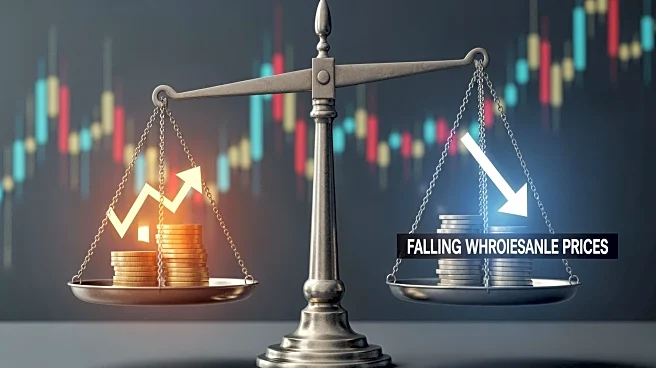What's Happening?
British households are experiencing an energy crisis where consumer bills are increasing despite a drop in wholesale power and gas prices. This situation is creating a political challenge for the UK government,
which is seeking funds for the clean-energy transition while trying to convince voters of future lower electricity costs. Domestic energy bills, already among the highest in Europe, are expected to rise further due to increased network charges and policy costs, even as wholesale prices are forecasted to decline. The government argues that the transition to cheaper renewables will eventually reduce bills, but the upfront costs are currently being borne by households. The energy regulator, Ofgem, is expected to approve new spending plans for transmission grid operators, which could further increase annual bills.
Why It's Important?
The rising energy bills in the UK have significant implications for both consumers and the government. Households are facing financial strain, with energy debt ballooning to over £4.4 billion. This situation risks voter dissatisfaction as citizens are asked to contribute to the decarbonization efforts. The government's challenge is to balance the immediate financial impact on consumers with the long-term benefits of transitioning to renewable energy. The political pressure is mounting as the Chancellor prepares the budget, which may include tax hikes and adjustments to climate levies. The outcome of these decisions will affect the affordability of energy for consumers and the pace of the clean-energy transition.
What's Next?
The UK Chancellor, Rachel Reeves, is preparing to announce the budget later this month, which may include measures to alleviate the financial burden on households. Potential options include tweaks to tax and climate levies to reduce energy costs. The government aims to ensure that any changes are progressive, benefiting those most in need. Additionally, the energy regulator's upcoming approval of new spending plans for grid operators will likely impact future bills. The government must navigate these decisions carefully to maintain public support for its energy policies while advancing the transition to renewables.
Beyond the Headlines
The energy crisis highlights the broader challenge of transitioning to a renewable energy system while managing immediate consumer costs. The UK is investing heavily in grid upgrades and renewable energy projects, which are essential for long-term reliability and affordability. However, the focus on infrastructure may overlook opportunities to decarbonize electricity use through alternative methods. Policymakers are urged to consider electrifying homes and transport as part of the transition strategy, which could offer cost-effective solutions and reduce the need for extensive new assets.









